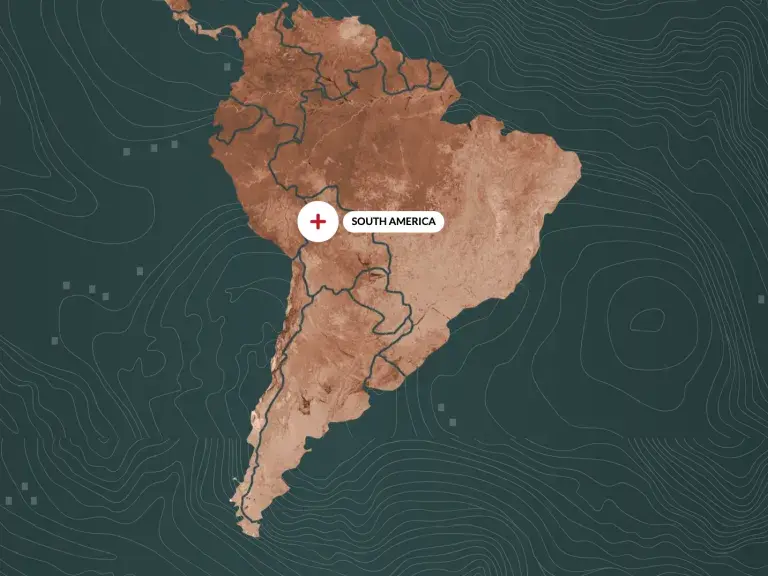
Surge of action to strengthen territorial security closely aligned with reaching environmental conservation and climate change goals
Indigenous leaders, government representatives and legal experts are meeting in Brasilia on April 7 and 8 to present concrete advances in Indigenous land titling in Brazil, Peru, Guatemala and Argentina, in the face of continued historical and political challenges. Recent efforts in these four countries have advanced legal title for nearly 1.5 million hectares of Indigenous lands.
Organized by the Indian Law Resource Center (ILRC), the conference will address the pressing issue of territorial security of Indigenous lands in South and Central America, along with Mexico, as a pillar of social justice and environmental preservation. This is part of the Indigenous Lands Initiative (ILI Project), a project carried out by the ILRC in partnership with the Coordination of the Indigenous Organizations of the Brazilian Amazon (COIAB) and the Interethnic Association for the Development of the Peruvian Amazon (AIDESEP).
The ILI Project is navigating complex and changing legal frameworks to secure land titles in four countries, with more to come. Indigenous Peoples are driving the process, serving at the forefront as technicians, lawyers, advocates and land defenders.
Indigenous Land Rights as a Largely Untapped Climate Solution
Overwhelming research shows that Indigenous Peoples are planet protectors; their land stewardship is linked to improved biodiversity, reduced deforestation, and preventing climate change. Just this month, a new assessment outlined eight recommendations for governments to advance forest protection. One of these is securing Indigenous land rights.
Yet many Indigenous communities in Mexico and Central and South America lack secure collective land rights, leaving them more vulnerable to illegal invasions, logging, mining, drug trafficking and destructive commercial activities.
Land titling offers an affordable method for countries to show commitment and action toward climate goals, especially with climate finance initiatives like the Tropical Forests Forever Facility (TFFF) set to launch at COP30. But according to research, many countries are paying lip service and not following through on commitments.
Despite overwhelming evidence of the role of Indigenous Peoples in protecting the Amazon and other important biomes — underscoring that they are part of the solution, not the problem — Indigenous Peoples continue to be under siege by land invaders.
Surge of Action to Secure Land Rights to Nearly 1.5 Million Hectares
The Indian Law Resource Center (ILRC), in partnership with the Interethnic Association for the Development of the Peruvian Amazon (AIDESEP) and the Coordination of the Indigenous Organizations of the Brazilian Amazon (COIAB), is leading the Indigenous Lands Initiative Project (ILI Project).
The ILI Project is working on securing land titles in four countries, navigating complex and changing legal frameworks to increase land titling. Indigenous Peoples are driving the process, serving at the forefront as technicians, lawyers and advocates, and land defenders.
While the project will expand over the coming years, the Indigenous Lands Initiative (ILI Project) is currently focused on pilot projects in four countries: Peru, Brazil, Argentina and Guatemala.
PERU:
Peru is a leading example of successful action on land titling. The land titling work under the ILI Project was launched in the Peruvian Amazon in May 2023. In the first two years of the project, working with AIDESEP, a regional Indigenous organization representing the Peruvian Amazon, the ILI Project has aided 36 Indigenous communities in land titling processes. These communities encompass over 300,000 hectares of the Peruvian Amazon.
BRAZIL:
The ILI Project in Brazil has proven particularly complex because Indigenous Peoples in the region have been pushed off their ancestral territories due to threats from illegal miners, loggers, and land grabbers. In collaboration with COIAB, the ILI Project is focused on both helping communities gain legal security over their lands and in rebuilding Indigenous communities. ILRC staff are training attorneys in Brazil to pursue legal actions to challenge and improve laws and policies that restrict or impede Indigenous land ownership rights. Community members are also being trained on how to use drones to monitor the vast swaths of land within their territories. Under the ILI Project, nearly one million hectares of the Brazilian Amazon is being titled under Indigenous ownership.
ARGENTINA:
In Argentina, the ILI Project is focused on helping the Red Atacama (a network of eleven Indigenous Atacama communities) to apply for a single, collective title to their lands. These communities inhabit over 159,000 hectares of land in the “lithium triangle”, a transboundary area between Argentina, Bolivia, and Chile, which constitutes the largest lithium reserve in the world. Mining companies are exerting enormous pressure to gain unfettered access to the lithium deposits on Atacama lands.
ILI staff are training community leaders in cartography, georeferencing, map making, and field data collection so that they can lead in the work to secure their own land rights. The ultimate outcome will be a map of the Atacama territories, which will be used in court to argue for the collective land rights of the Atacama people.
GUATEMALA:
In Guatemala, the ILI Project has largely focused on legal and policy reforms to make collective land titling accessible for over six million Indigenous Guatemalans. Senior ILRC staff attorney Leo Crippa argued the landmark “Maya Ǫ’eqchi’ Agua Caliente Indigenous Community vs. Guatemala” case before the Inter-American Court of Human Rights. The Court ruled in favor of Crippa’s arguments, ordering the State to adopt laws that recognize the right of collective ownership of Indigenous peoples over their lands. Now the Indian Law Resource Center (ILRC) is focused on the ongoing implementation of the Court’s decision.
